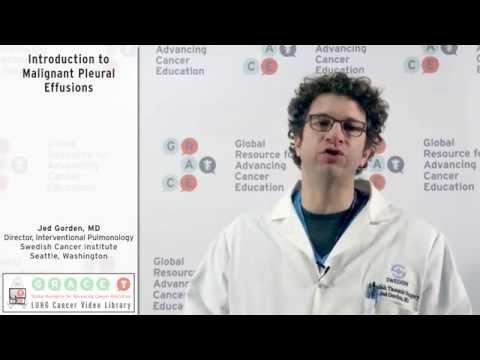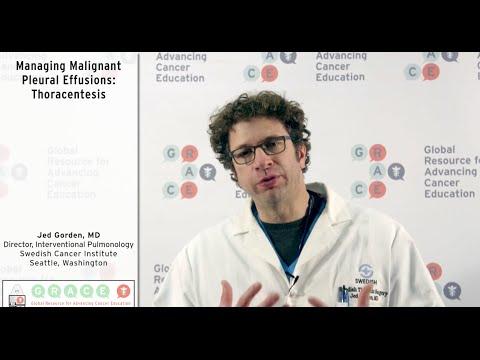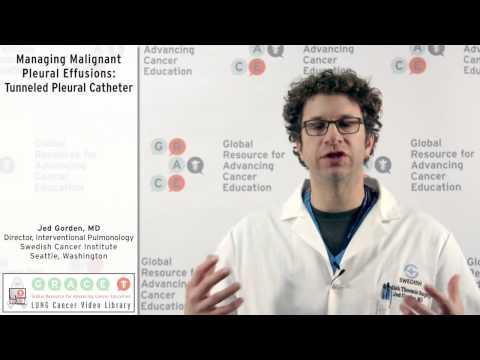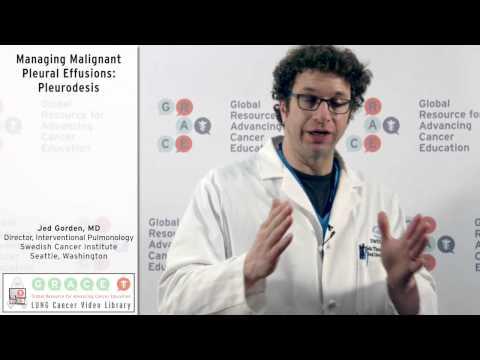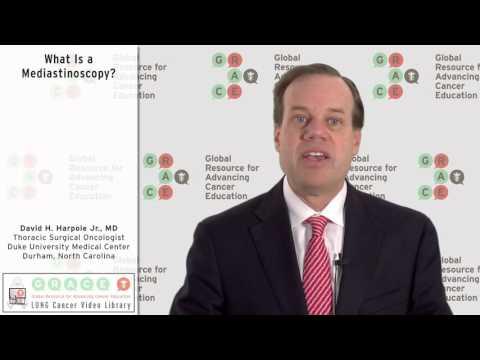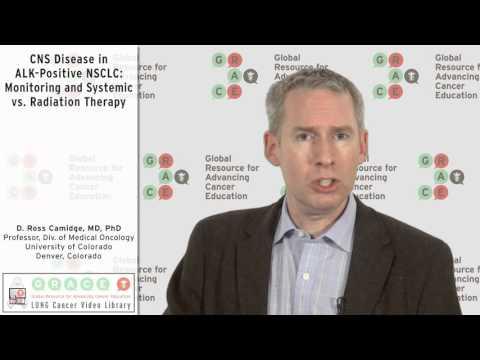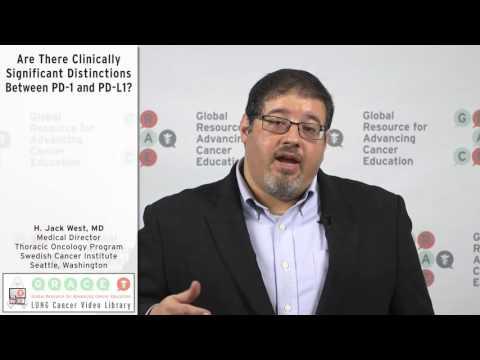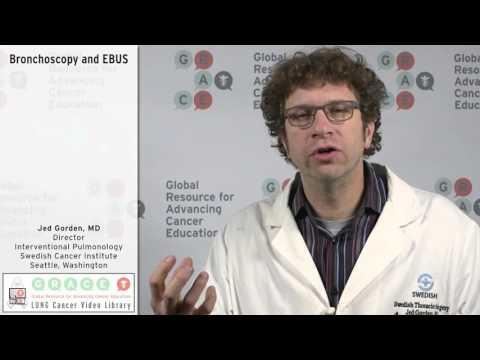Interventional pulmonologist Dr. Jed Gorden reviews malignant pleural effusions (MPEs) are a common complication of lung cancer and some other cancers. Transcript So, I wanted to talk to you today about pleural effusions. Pleural effusions — it’s a complex term, and it’s a very common problem, so
Video Library
Search the Video Library
Video Language
Filter by Cancer Type:
Displaying Results 1 - 15 of 91
Dr. Jed Gorden describes the details of how a thoracentesis is performed in order to clarify the diagnosis and treat symptoms of a malignant pleural effusion (MPE). Transcript With the pleural fluid that’s built up around the lung — this fluid that exist in between the linings, or as we discussed
A tunneled pleural catheter is an excellent way to manage the symptoms of a recurrent malignant pleural effusion. Dr. Jed Gorden describes how it is placed and how it works. Transcript So we’re talking today about pleural fluid — fluid that resides around the lung, in-between this space that we’re
Dr. Jed Gorden reviews the technique of pleurodesis to manage the complication of recurrent malignant pleural effusion (MPE). Transcript So we’re talking today about pleural fluid, the fluid that builds up around the lung — fluid that causes people be short of breath, often have symptoms like cough
Dr. Jack West, medical oncologist/lung cancer specialist, describes special management considerations for indolent lung cancers that may not require treatment or are at risk for “over-treatment.”
Dr. David Harpole, Duke University Medical Center, describes how he assists patients with the surgical decision-making process.
Dr. David Harpole, Duke University Medical Center, details the methods thoracic surgeons use to assess a patient's fitness for surgery.
Dr. David Harpole, Duke University Medical Center, describes the mediastinoscopy and its use in lung cancer staging.
Transcript More and more, when people are doing molecular testing on their tumor, they’re not just getting one test and if it’s negative doing another test — that’s called sequential testing, they’re doing lots of tests at the same time — that’s called multiplex testing. There are certain good
Dr. Ross Camidge, University of Colorado, explains the preference for crizotinib rather than platinum doublet chemotherapy as first line treatment for patients with ALK or ROS1 rearrangements.
Dr. Ross Camidge, University of Colorado, discusses management of CNS progression for ALK-positive NSCLC including monitoring frequency and preferences between systemic and radiation therapy.
Dr. Ross Camidge, University of Colorado, addresses the question of whether to use a second generation ALK inhibitor as first line therapy or only after acquired resistance to crizotinib.
Dr. Jack West, Swedish Cancer Institute, compares the mechanism of action, efficacy and toxicity of PD-1 and PD-L1 inhibitors.
Dr. Jed Gorden, Swedish Cancer Institute, describes the differences between bronchoscopy and endobronchial ultrasound, highlighting the advantages of EBUS in diagnosis and staging.
UCLA Med Center's Dr. Eddie Garon discusses the open question of the optimal duration of ongoing treatment with immunotherapy for lung cancer.

